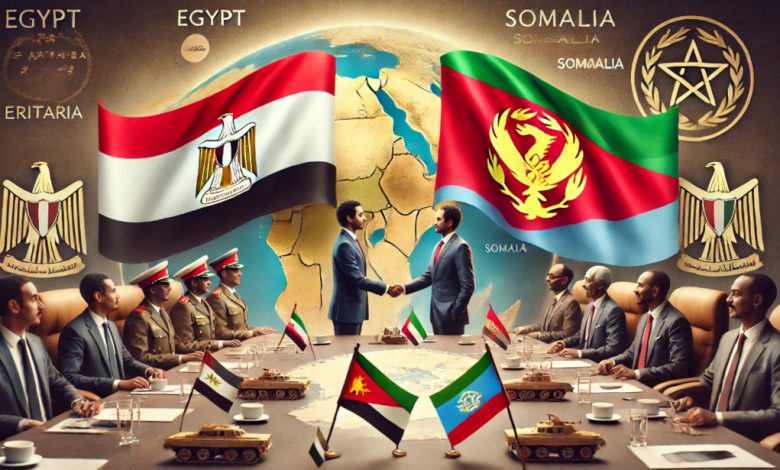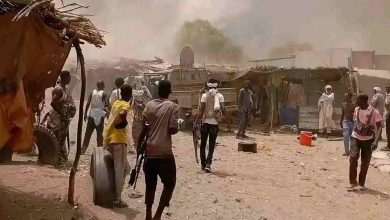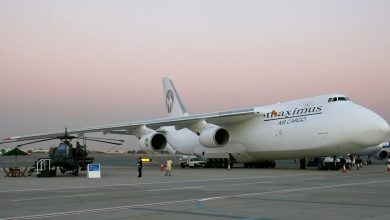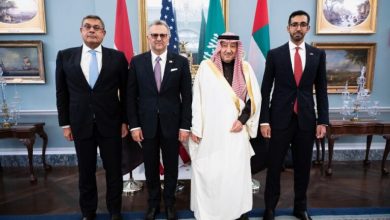Reports
Egypt and Eritrea Discuss Potential Military Agreement Amid Regional Tensions
The agreement will include steps to protect Red Sea shipping, which has been disrupted by attacks from Iran-backed rebels in Yemen

Hamza El Hindawi –
Cairo
September 16, 2024
Egypt and Eritrea are exploring a potential military cooperation agreement and intelligence-sharing efforts to strengthen their already close ties, according to sources.
Sources told *The National* that the agreement would also include bilateral steps to protect Red Sea shipping, which has faced severe disruptions due to attacks carried out by Iran-backed rebels in Yemen, who are acting in solidarity with Palestinians during the ongoing 11-month-long Israeli war in Gaza.
Egypt is also discussing with Eritrea the possibility of Cairo mediating to end the long-standing hostilities between Asmara and separatist rebels in Ethiopia’s neighboring Tigray region, where the Tigray People’s Liberation Front (TPLF) poses the most significant threat to Prime Minister Abiy Ahmed’s rule.
In Egypt, Abiy Ahmed is considered persona non grata due to what Cairo views as his intransigence during over a decade of fruitless negotiations to resolve the dispute between the two nations over Ethiopia’s construction of the massive Grand Ethiopian Renaissance Dam, which Egypt considers an existential threat to its crucial share of Nile waters. Addis Ababa, on the other hand, accuses Cairo of supporting anti-government groups to destabilize Ethiopia.
The talks between Egypt and Eritrea follow a surprise visit to Asmara at the end of last week by Egyptian intelligence chief General Kamel Abbas, a close associate of President Abdel Fattah El Sisi, and Foreign Minister Badr Abdel Aty. The two met with Eritrean President Isaias Afwerki.
Egypt’s Foreign Ministry said on Saturday that they delivered a message from President El Sisi to the Eritrean president on “enhancing and developing bilateral relations in all fields.”
It added that Afwerki shared his views on developments in the Red Sea and the importance of creating suitable conditions to restore maritime shipping and international trade through the Bab el-Mandeb Strait.
The Egyptian delegation also listened to Afwerki’s perspectives on developments in the Horn of Africa, the challenges facing the region, and ways to strengthen security and stability there.
Egypt and Eritrea share about 5,000 kilometers of coastline along the Red Sea, including Egypt’s coasts on the Gulfs of Suez and Aqaba, as well as 355 islands under Eritrean sovereignty. While Egypt controls the northern parts of the Red Sea, including the Suez Canal connecting to the Mediterranean Sea, Eritrea is located near the strategic Bab el-Mandeb Strait.
The two nations have strengthened their close relations over the past decade since El Sisi came to power in the most populous Arab country. Afwerki has met with the Egyptian president several times in recent years, most recently in Cairo last February, just three months after their prior meeting in Riyadh, Saudi Arabia.
One source said, “Egypt’s primary goal in the region is to limit Ethiopia’s influence in the Horn of Africa and apply pressure on Abiy Ahmed’s government,” adding, “Strengthening cooperation with Eritrea is a major step in that direction.”
The potential military cooperation agreement with Eritrea would be the latest of its kind between Cairo and nations in the Horn of Africa, East Africa, or the Nile Basin. These include Djibouti, Kenya, Uganda, Sudan, and Somalia.
Analysts have long suspected that these agreements are primarily aimed at pressuring Addis Ababa to show flexibility in its dispute with Egypt over the dam.
The most recent military cooperation agreement between Egypt and its southern neighbors was signed last month with Somalia, which has traditionally been at odds with Ethiopia. Under the terms of that agreement, Egypt transferred weapons, military equipment, and troops to Somalia at the end of last month, sparking Ethiopia’s anger. Addis Ababa warned that this move would undermine stability in the Horn of Africa and vowed not to stand idly by.
Meanwhile, Eritrea gained independence from Ethiopia in 1993 after a decades-long civil war. The two countries fought a devastating war over a border dispute from 1998 to 2000. Despite making peace afterward and fighting together against the Tigray rebels in Ethiopia from 2020 to 2022, they remain rivals.
Somalia, for its part, is currently at odds with Addis Ababa over a preliminary agreement signed earlier this year with the breakaway Somaliland region to lease coastal land in exchange for potential recognition of its independence from Somalia.
Somalia called the agreement an assault on its sovereignty and said it would prevent it by all possible means.
Somali State Minister for Foreign Affairs Ali Mohamed Omar said in an interview with Qatar’s *Al Jazeera* last week, “Somalia and Ethiopia have had a long-standing, ongoing enmity.”
When asked how Somalia would respond if Ethiopia and Somaliland proceeded with implementing the deal, he said, “That would be a declaration of war.”
Somalia has already threatened to send back around 10,000 Ethiopian troops stationed in Somalia as part of an African Union-mandated peacekeeping force if the agreement is not canceled.
Meanwhile, Egypt has said it intends to apply to the African Union to be part of a new peacekeeping force in Somalia, which must be approved by the host nation, Somalia.
If realized, this could further escalate tensions. Already, the 17-month-long war in Sudan has pushed over two million people across the borders of the large country. In Ethiopia, ethnic divisions appear to be worsening seriously, while Somalia faces a persistent threat from the militant group Al-Shabaab.



